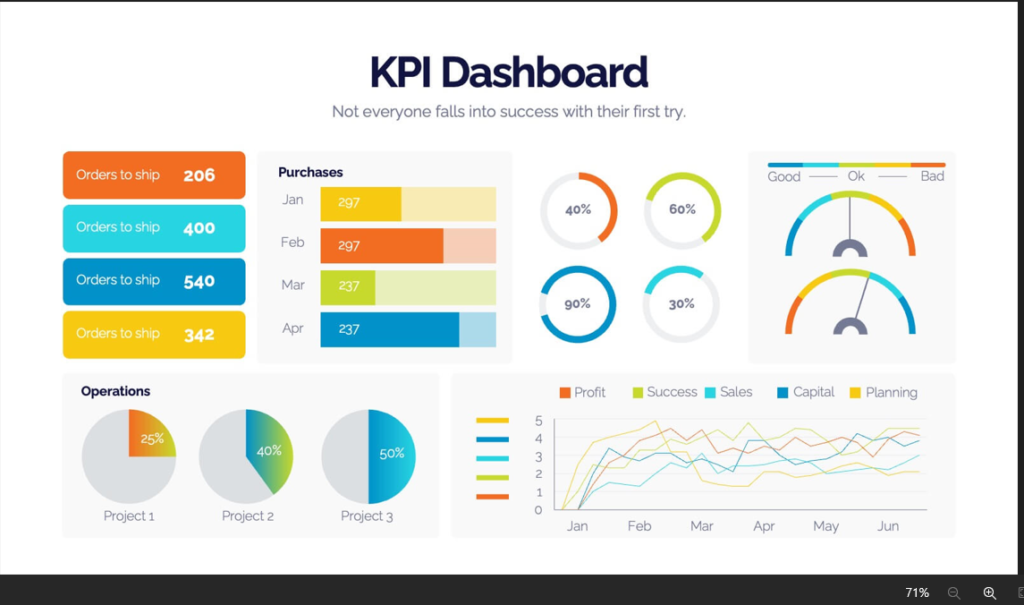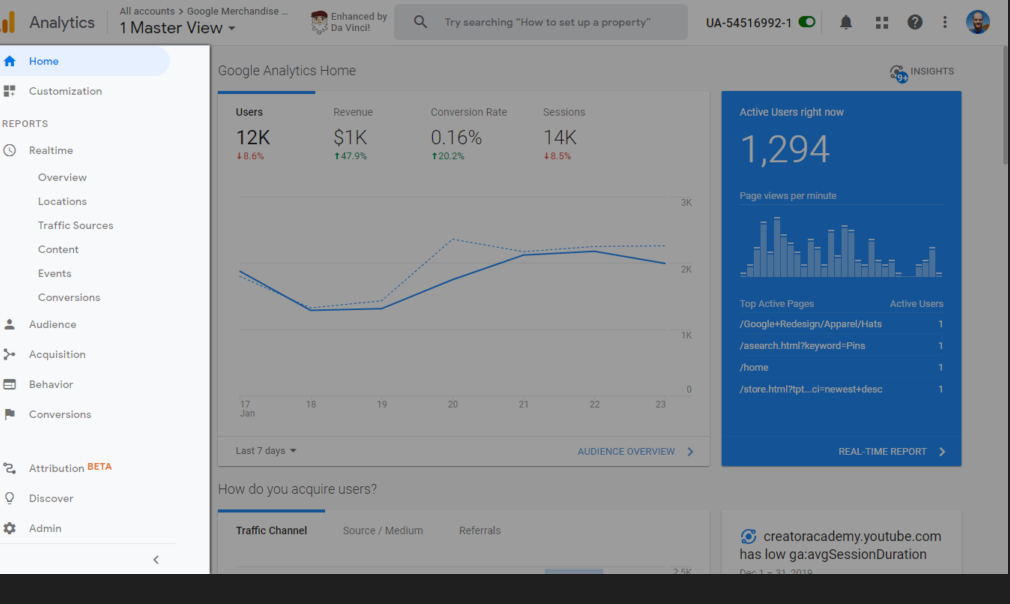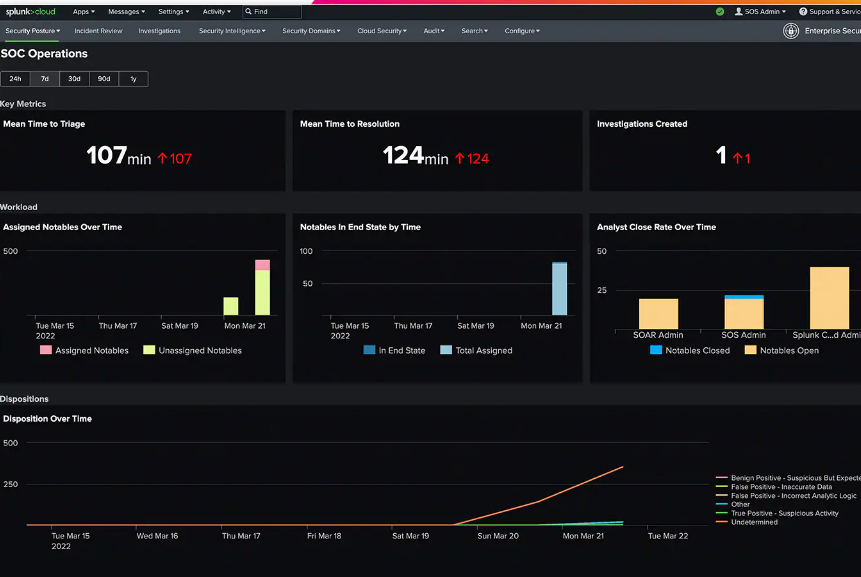Introduction
In today’s fast-paced and ever-evolving job market, essential skills have become a critical component of career success. These skills, which encompass both technical abilities and personal attributes, are fundamental to navigating professional challenges and seizing new opportunities. As industries continue to transform and new job roles emerge, understanding and developing the right set of essential skills can significantly enhance your employability and career growth.
The term essential skills refers to a broad range of competencies that are highly valued across various fields and industries. From hard skills, like data analysis and technical expertise, to soft skills, such as communication and problem-solving, these abilities are crucial for both personal and professional development. By focusing on cultivating these skills, individuals can better align themselves with the demands of the modern job market and stand out to potential employers.
In this blog post, we will explore what constitutes essential skills, identify the top skills required in today’s workplace, and provide practical advice on how to develop and assess these skills. Whether you’re a recent graduate, a career changer, or a seasoned professional looking to stay ahead, understanding and honing these key competencies will equip you for success in a competitive job landscape.

Top Essential Hard Skills
In today’s competitive job market, possessing the right hard skills can make a significant difference in your career prospects. Hard skills refer to specific, teachable abilities that can be quantified and measured. They are often acquired through education, training, or experience and are crucial for performing technical tasks in various professions. Here, we explore some of the top essential hard skills that are highly sought after in 2024.
1. Data Analysis
Data analysis has become one of the most important hard skills across multiple industries. The ability to interpret complex data sets and extract meaningful insights is crucial for decision-making and strategy development. Proficiency in tools such as Excel, SQL, and Python, as well as familiarity with data visualization software like Tableau, can greatly enhance your value in roles related to finance, marketing, and research.

2. Programming and Coding
Programming and coding skills are indispensable in the technology-driven world. Languages such as Python, JavaScript, Java, and C++ are foundational for software development, web development, and various IT roles. Understanding algorithms, data structures, and software engineering principles can set you apart in a competitive job market and open doors to numerous tech-related opportunities.
3. Digital Marketing
Digital marketing skills are increasingly crucial as businesses rely on online channels to reach their target audiences. Key areas include search engine optimization (SEO), pay-per-click (PPC) advertising, social media marketing, and content creation. Proficiency with tools like Google Analytics, SEMrush, and Hootsuite can significantly boost your effectiveness in crafting and executing marketing strategies.

4. Project Management
Project management is a valuable skill across various sectors, including construction, IT, and business. Being adept at planning, executing, and overseeing projects ensures that objectives are met on time and within budget. Familiarity with project management methodologies like Agile and tools such as Microsoft Project or Asana can enhance your efficiency and leadership capabilities.
5. Graphic Design
Graphic design skills are essential for creating visual content that communicates effectively and engages audiences. Knowledge of design software such as Adobe Photoshop, Illustrator, and InDesign allows you to produce high-quality graphics for marketing materials, websites, and social media. A strong portfolio showcasing your design work can be a powerful asset in creative and marketing roles.
6. Cybersecurity
With increasing cyber threats, cybersecurity skills are critical for protecting sensitive information and maintaining data integrity. Expertise in network security, ethical hacking, and knowledge of cybersecurity frameworks and tools can help organizations safeguard against breaches and attacks. Certifications like CISSP or CEH can further validate your skills in this high-demand field.

7. Cloud Computing
Cloud computing has revolutionized how businesses manage and store data. Skills in cloud platforms such as AWS, Google Cloud, and Microsoft Azure are essential for managing cloud infrastructure, deploying applications, and ensuring scalability and security. Understanding cloud services and architectures can position you as a valuable asset in IT and tech roles.
Mastering these essential hard skills can significantly enhance your employability and career advancement. By staying current with industry trends and continuously developing your skill set, you can ensure that you remain competitive in an ever-evolving job market.
Top Essential Soft Skills
In today’s competitive job market, soft skills are just as crucial as technical abilities. These interpersonal and personal attributes enable individuals to interact effectively and harmoniously with others. Focusing on essential soft skills can significantly enhance your employability and career advancement.
Communication Skills
Effective communication is fundamental to success in any role. It encompasses both verbal and written skills, allowing you to convey information clearly and understand others. Employers value individuals who can articulate their ideas, listen actively, and adapt their communication style to different audiences.
Problem-Solving Skills
The ability to analyze situations, identify problems, and devise solutions is highly prized. Strong problem-solving skills involve critical thinking and creativity, enabling you to tackle challenges and make informed decisions. This skill is particularly valuable in dynamic and fast-paced work environments.
Teamwork and Collaboration
Collaboration is essential in almost every profession. Being able to work well with others, share responsibilities, and contribute to a collective goal is crucial. Employers look for team players who can navigate group dynamics and contribute positively to team efforts.
Adaptability and Flexibility
In a rapidly changing work landscape, adaptability is key. This soft skill involves being open to new ideas, embracing change, and adjusting to evolving circumstances. Employees who demonstrate flexibility are more likely to thrive in diverse and unpredictable environments.
Emotional Intelligence
Emotional intelligence (EI) refers to the ability to understand and manage your own emotions and those of others. High EI helps in building strong relationships, managing stress, and resolving conflicts. It’s an essential skill for maintaining a positive work environment and fostering effective interpersonal interactions.
Time Management
Effective time management allows you to prioritize tasks, meet deadlines, and maintain productivity. Being organized and efficient with your time is crucial for balancing workloads and achieving goals without unnecessary stress.
The Role of Education and Training
In the rapidly evolving job market, the role of education and training cannot be overstated when it comes to acquiring essential skills. Both formal education and targeted training play crucial roles in equipping individuals with the competencies needed to excel in their careers.
Formal Education
Formal education provides a structured approach to learning, often through degree programs, diplomas, or certifications. It offers foundational knowledge and theoretical understanding in various fields. For example, a degree in computer science covers essential skills such as programming and software development. Formal education is valuable because it:
- Provides a Comprehensive Foundation: It delivers a broad and deep understanding of fundamental concepts.
- Enhances Credibility: Degrees and certifications often enhance employability and credibility in the job market.
- Fosters Critical Thinking: It encourages analytical and problem-solving skills through structured coursework and examinations.
Targeted Training
While formal education lays the groundwork, targeted training focuses on specific skills relevant to a particular role or industry. This includes workshops, online courses, and on-the-job training. Targeted training is crucial because it:
- Offers Practical Skills: It provides hands-on experience and practical knowledge that can be directly applied in the workplace.
- Adapts to Industry Needs: Training programs can be tailored to meet the evolving demands of different industries.
- Promotes Lifelong Learning: It supports continuous skill development, which is essential for keeping up with industry advancements.
Combining Education and Training
Integrating formal education with targeted training can create a well-rounded skill set. For instance, a graduate in marketing might benefit from formal education in marketing principles combined with specialized training in digital marketing tools. This combination ensures both a strong theoretical base and practical expertise.
Soft Skills vs. Hard Skills: Which Are More Important?
When discussing essential skills in the modern job market, it’s crucial to understand the distinction between soft skills and hard skills, and how each contributes to professional success. The focus keyword “Essential Skills” encompasses both of these skill types, each playing a distinct role in career development.
Hard Skills are technical abilities and knowledge specific to a particular job or industry. They are usually acquired through education, training, or experience. Examples include proficiency in programming languages, data analysis, and financial forecasting. Hard skills are often quantifiable and can be tested through exams or practical applications. For instance, a certification in a specific software program or a degree in engineering showcases a candidate’s hard skills.
Soft Skills, on the other hand, are more about personal attributes and interpersonal abilities that help individuals interact effectively with others. These include communication, teamwork, problem-solving, and time management. Soft skills are less tangible and more subjective, but they are equally important. For example, the ability to work well under pressure or to lead a team is crucial for success in many roles.
Importance of Hard Skills
Hard skills are essential because they demonstrate a candidate’s ability to perform specific tasks required for a job. They are often the key criteria for employers when assessing a candidate’s suitability for a technical position. For example, a software developer must have a solid understanding of coding languages and development tools.
Importance of Soft Skills
While hard skills are vital for performing job-specific tasks, soft skills are crucial for thriving in any work environment. They enhance a person’s ability to collaborate, adapt to changes, and manage stress. For example, effective communication can lead to better team collaboration and conflict resolution, which are essential in any role.
Balancing Both Skill Sets
In today’s competitive job market, having a balance of both hard and soft skills is crucial. Hard skills can get your foot in the door, but soft skills often determine long-term success and career advancement. Employers are increasingly looking for candidates who not only have the technical knowledge but also possess the interpersonal skills to excel in their roles.
Conclusion
In conclusion, both soft skills and hard skills are integral to professional success. While hard skills might be the initial focus for getting hired, soft skills play a significant role in career growth and effectiveness in the workplace. By developing a well-rounded skill set, you can enhance your employability and achieve a successful and fulfilling career.
How to Assess Your Current Skill Set
Evaluating your skill set is a crucial step in understanding where you stand and identifying areas for improvement. To effectively assess your current skills, follow these steps:
1. Self-Assessment
Start by conducting a self-assessment to get a broad view of your skills. Reflect on your recent projects, job performance, and daily tasks. Consider the essential skills you’ve utilized and evaluate your proficiency in them. Ask yourself:
- What skills have I used frequently?
- Which tasks have I excelled at?
- Where do I feel less confident?
2. Create a Skills Inventory
Make a comprehensive list of your skills. Categorize them into hard skills (technical abilities) and soft skills (interpersonal abilities). For each skill, rate your level of expertise, from beginner to advanced. This inventory will help you visualize your strengths and identify gaps.
3. Seek Feedback
Gather feedback from colleagues, supervisors, and mentors. They can provide valuable insights into your skill set and offer perspectives you might not have considered. Ask for specific examples of how your skills have impacted your work and areas where you could improve.
4. Utilize Assessment Tools
There are various online tools and assessments designed to evaluate essential skills. These tools can provide a structured analysis of your abilities and suggest areas for development. Consider using platforms that offer skills assessments and career evaluations.
5. Compare with Industry Standards
Research the essential skills required in your field or industry. Compare your skill set against industry standards and job descriptions for roles you’re interested in. This comparison will help you identify discrepancies between your current skills and those that are in demand.
6. Set Development Goals
Based on your assessment, set clear, achievable goals for improving your skills. Develop a plan that includes resources such as courses, workshops, and practice opportunities. Regularly review and update your goals as you progress.
By following these steps, you can gain a clear understanding of your current skill set and take actionable steps to enhance your essential skills. Regular assessment and targeted development will help you stay competitive and advance in your career.
Developing Essential Skills: Strategies and Resources
In today’s competitive job market, developing essential skills is crucial for career growth and success. Whether you’re aiming to improve your technical abilities or enhance your interpersonal skills, focusing on effective strategies and utilizing the right resources can make a significant difference. Here’s a guide to help you develop the essential skills needed in 2024.
1. Identify Your Skill Gaps
Before embarking on skill development, it’s important to assess where you currently stand. Start by identifying the essential skills required for your industry or desired job role. Use self-assessment tools, feedback from peers, or career assessments to pinpoint your strengths and areas for improvement. [Image suggestion: A graphic or chart showing the process of self-assessment.]
2. Set Clear, Achievable Goals
Once you’ve identified your skill gaps, set specific, measurable, and achievable goals. For example, if you need to improve your data analysis skills, your goal might be to complete a particular online course or certification within a set timeframe. Clear goals will help you stay focused and track your progress. [Image suggestion: An image of a goal-setting worksheet or planner.]
3. Leverage Online Courses and Workshops
Online platforms offer a wealth of resources for developing essential skills. Websites like Coursera, Udemy, and LinkedIn Learning provide courses on a wide range of topics, from technical skills like programming to soft skills like communication. Choose courses that are well-reviewed and align with your goals. [Image suggestion: Screenshots or logos of popular online learning platforms.]
4. Engage in Practical Experience
Practical experience is invaluable for skill development. Look for internships, volunteer opportunities, or freelance projects that allow you to apply your skills in real-world scenarios. Practical experience not only enhances your skills but also builds your resume and professional network. [Image suggestion: A photo of someone working on a project or engaging in a workshop.]
5. Seek Feedback and Mentorship
Feedback from colleagues, mentors, or supervisors can provide insights into your skill development. Constructive criticism helps you understand your strengths and areas for improvement. Additionally, finding a mentor who has experience in your field can offer guidance, resources, and encouragement. [Image suggestion: An image of a mentor and mentee or a feedback session.]
6. Stay Updated with Industry Trends
Essential skills are constantly evolving, so it’s important to stay informed about the latest trends and developments in your industry. Subscribe to industry journals, follow relevant blogs, and participate in professional organizations to keep your skills current. [Image suggestion: An image of industry publications or a newsfeed related to your field.]
7. Practice Regularly
Regular practice is key to mastering any skill. Dedicate time each week to practice and refine your skills. This could involve working on projects, participating in workshops, or engaging in activities that challenge and develop your abilities. [Image suggestion: A calendar or schedule showing regular practice sessions.]
8. Utilize Books and Articles
Books and articles by experts in your field can provide in-depth knowledge and insights. Look for highly recommended books and reputable articles on essential skills you want to develop. They can offer new perspectives and techniques that may not be covered in online courses. [Image suggestion: A stack of books or an image of an open book with highlighted text.]
By following these strategies and utilizing available resources, you can effectively develop the essential skills needed to excel in your career. Remember, continuous learning and practice are key to staying competitive and achieving your professional goals.
Real-World Examples and Case Studies
In the ever-evolving job market, understanding the practical application of essential skills can provide valuable insights into how these competencies drive success. Here, we highlight real-world examples and case studies to illustrate the importance of essential skills and how they are leveraged in various fields.
1. Case Study: Tech Industry
In the technology sector, essential skills like data analysis and programming are crucial. For instance, consider the success story of Sarah Johnson, a data scientist at a leading tech company. By mastering Python and SQL—essential hard skills—Sarah was able to analyze complex datasets and develop actionable insights that led to a 20% increase in operational efficiency for her team. Her story underscores the value of technical expertise in driving innovation and solving real-world problems.
2. Case Study: Healthcare Sector
In healthcare, soft skills such as empathy and communication are just as critical as medical knowledge. Dr. Michael Lee, a family physician, demonstrates this perfectly. His ability to communicate effectively with patients and show empathy significantly improves patient satisfaction and outcomes. By combining his medical expertise with these essential soft skills, Dr. Lee has built a successful practice and earned trust within his community.
3. Case Study: Education Field
Educators often need a blend of essential skills, including both hard skills like subject matter expertise and soft skills like classroom management. Ms. Emily Carter, a high school chemistry teacher, utilizes her deep knowledge of chemistry along with her exceptional communication skills to create engaging lessons that enhance student learning. Her success highlights how a balance of hard and soft skills contributes to effective teaching and student success.
4. Case Study: Business and Management
In the business world, essential skills such as leadership and project management are pivotal. John Smith, a project manager at a multinational corporation, exemplifies this by leading cross-functional teams through complex projects. His proficiency in project management tools and leadership skills has led to the successful completion of multiple high-stakes projects, demonstrating how essential skills can drive organizational success.
These case studies illustrate how essential skills play a crucial role in various industries. By applying these skills effectively, professionals can enhance their performance, contribute to their organizations, and achieve personal career goals. Understanding these real-world applications can inspire others to develop and refine their own essential skills.
FAQs
What are soft skills, and why are they important?
Soft skills are personal attributes and interpersonal abilities that enhance how effectively you interact with others. They include communication, problem-solving, teamwork, and emotional intelligence. These skills are crucial because they impact your ability to work well with others, adapt to change, and manage workplace challenges.
How do I develop my soft skills?
You can develop soft skills through various methods:
- Practice: Regularly engage in activities that require these skills, such as group projects or public speaking.
- Feedback: Seek constructive feedback from peers, mentors, or supervisors.
- Training: Take courses or workshops focused on soft skill development.
- Self-Assessment: Reflect on your strengths and areas for improvement, and set specific goals.
How can I demonstrate my soft skills during a job interview?
To showcase your soft skills during an interview:
- Provide Examples: Share specific examples of how you’ve used these skills in past experiences.
- Use STAR Method: Structure your responses using the STAR method (Situation, Task, Action, Result) to clearly outline your contributions and outcomes.
- Be Genuine: Exhibit the soft skills naturally in your responses and interactions with the interviewer.
Are soft skills more important than hard skills?
Both soft and hard skills are essential, but their importance can vary depending on the role and industry. Hard skills are specific technical abilities required for a job, while soft skills enhance how you apply those abilities in a work setting. Ideally, a balance of both types of skills is needed for overall career success.
Can soft skills impact my career advancement?
Yes, soft skills can significantly impact your career advancement. Strong soft skills often lead to better teamwork, leadership, and communication, which can result in increased opportunities for promotions and professional growth. Employers value employees who not only have technical expertise but also excel in interpersonal interactions.
How can I assess my soft skills?
You can assess your soft skills by:
- Self-Reflection: Evaluate your interactions and performance in various situations.
- Feedback: Ask for feedback from colleagues, mentors, or supervisors.
- Self-Assessment Tools: Use online self-assessment tools or quizzes designed to evaluate soft skills.
What are some common soft skills employers look for?
Common soft skills that employers seek include:
- Communication
- Teamwork and collaboration
- Problem-solving
- Adaptability
- Emotional intelligence
- Time management
How do soft skills complement hard skills in the workplace?
Soft skills complement hard skills by enhancing how you apply technical knowledge and abilities. For example, strong communication skills help you convey your hard-earned expertise effectively, while adaptability enables you to handle new tools or processes with ease. Together, they contribute to a well-rounded and effective professional.

